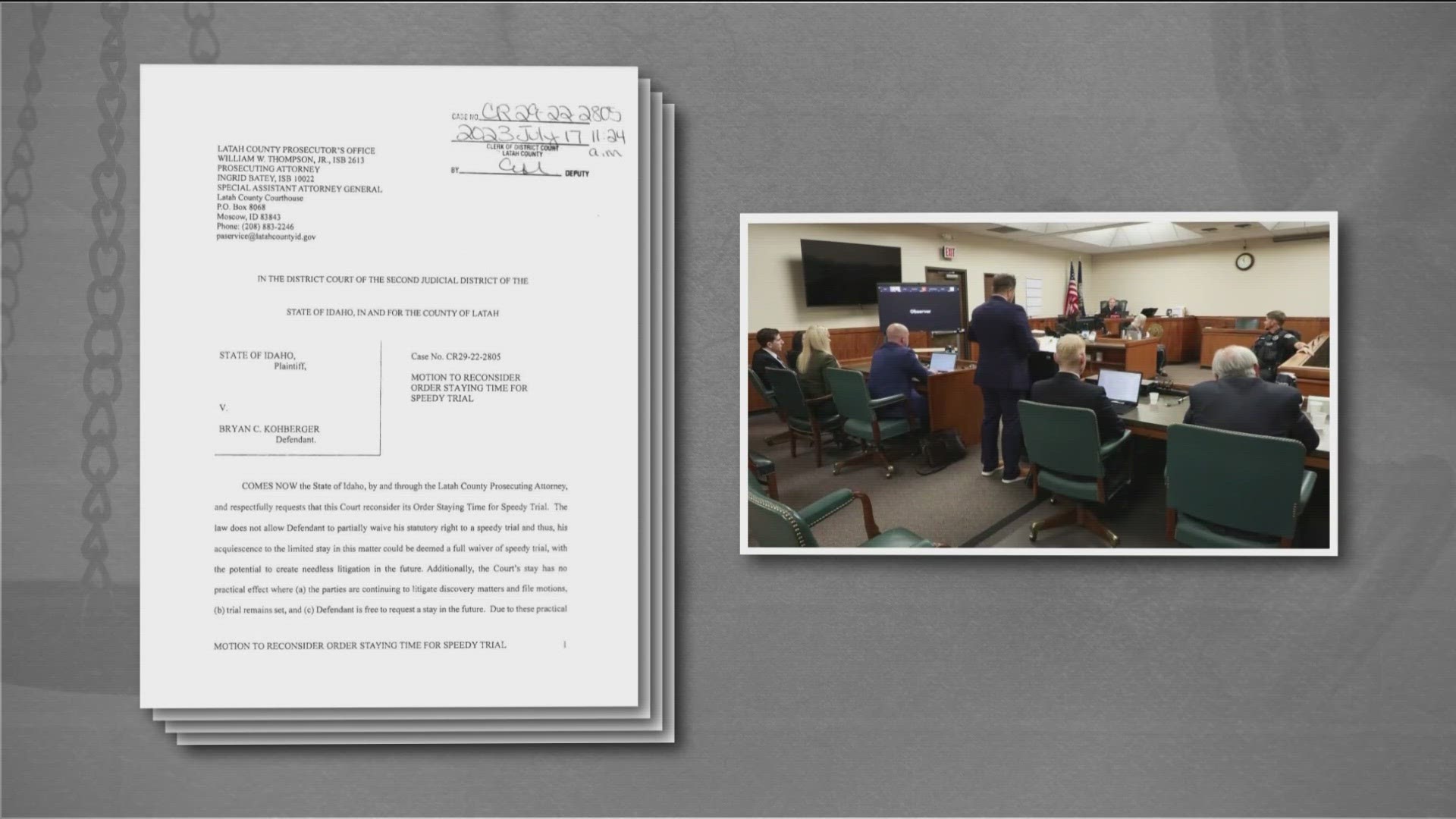MOSCOW, Idaho — Latah County prosecutors in the case against Bryan Kohberger, the man accused of killing four University of Idaho students, say that he can't just put his speedy trial on pause -- he has to waive his right to speedy trial altogether.
In a new motion filed Monday, prosecutors are asking Latah County District Judge John Judge to reconsider his decision to issue a 37-day stay on Kohberger's speedy trial clock so his attorneys can review the grand jury transcript. He is charged with four counts of first-degree murder, one count of felony burglary and now faces the death penalty.
Kohberger hasn't waived his right to speedy trial, which requires a defendant to go to trial within six months of their arraignment. His trial is set for Oct. 2 -- but if the stay is kept in place, he could face trial 37 days after that. Because of this, state prosecutors argue it's possible Kohberger could later say he was not brought to trial in a timely manner, and the case could be thrown out, which is supported under Idaho law.
Prosecutors cite the Idaho Supreme Court's ruling from Aug. 28, 2000, where they said a defendant cannot partially waive his right to a speedy trial -- "once the trial has been postponed, the six-month statutory period no longer applies," the decision said.
"As a purely practical matter, the parties, witnesses and victim family members are now in limbo -- will trial be set out thirty days at the defendant's option, or not?... Will the court issue another few weeks postponement?" the prosecutors ask in the motion. "These witnesses include loved ones and friends of the victims who are undoubtedly anxious for some degree of predictability as this case proceeds."
Prosecutors argue this matter is black and white -- the law simply does not allow for a defendant to still have a speedy trial with the underlying possibility of it being set out.
Kohberger's next hearing is on Aug. 2 regarding evidentiary matters.
Watch more coverage of this story
Ongoing coverage of the University of Idaho investigation can be found in our YouTube playlist:

